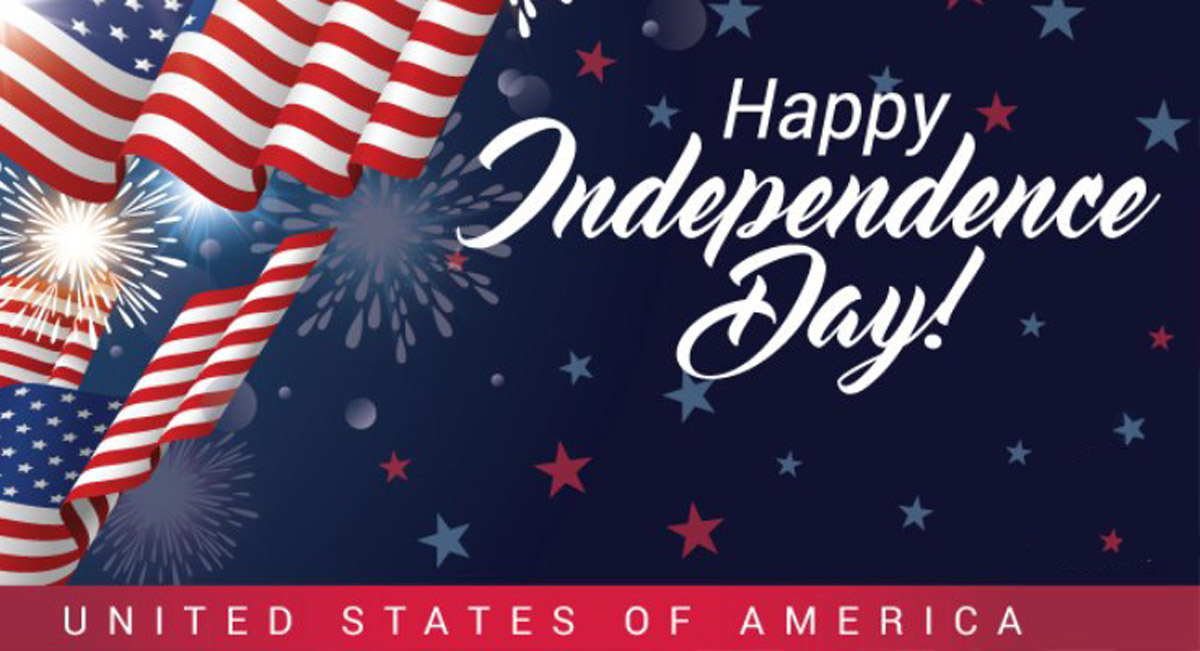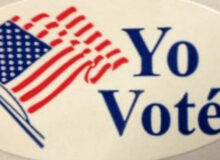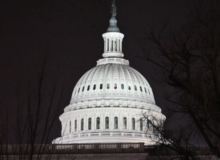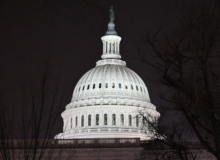By Dr. Jerry Newcombe,
Here’s a trivia question for you. The Statue of Liberty holds a torch in one hand. What is she holding in the other? It looks like a book, in tablet form.
The answer is the Declaration of Independence, since the tablet is engraved with July 4, 1776—in Roman numerals.
The great British writer, G.K. Chesterton, once said, “America is the only nation in the world that is founded on a creed. That creed is set forth with dogmatic and even theological lucidity in the Declaration of Independence.”
Nearly 250 years ago, 56 men, representing some three million British colonists voted to approve the final wording of that revolutionary document. If they failed in their bid for independence, these men were voting for their own death.
A month earlier, in June, the Continental Congress voted to approve declaring independence from Great Britain, and a committee was formed to write the document. Thomas Jefferson served on that committee and became the chief author. The bulk of what he wrote was accepted, with several alterations.
On July 4, 1776, Congress voted to accept by voice vote the final wording of the now-modified Declaration of Independence. John Adams said about our national birth certificate: “I am apt to believe that it will be celebrated, by succeeding Generations, as the great anniversary Festival. It ought to be commemorated, as the Day of Deliverance by solemn Acts of Devotion to God Almighty. It ought to be solemnized with Pomp and Parade, with Shews, Games, Sports, Guns, Bells, Bonfires and Illuminations from one End of this Continent to the other from this Time forward forever more.” “Illuminations” is another way of saying fireworks.
What makes the Declaration so revolutionary? Above all, it says that our rights come from God.
John F. Kennedy expressed it so well in his Inaugural Address in 1961, “…the same revolutionary beliefs for which our forebears fought are still at issue around the globe—the belief that the rights of man come not from the generosity of the state, but from the hand of God.”
As Chesterton noted of the Declaration of Independence, “It enunciates that all men are equal in their claim to justice, that governments exist to give them that justice, and that their authority is for that reason just. It certainly does condemn anarchism, and it does also by inference condemn atheism, since it clearly names the Creator as the ultimate authority from whom these equal rights are derived.”
In that sense, America is and always will be one nation under God. Unless we were somehow to be cut off from the Declaration, in which case, we would no longer be America.
The essence of Americanism is God-given rights to “We the people.” For all our flaws, for all the ugly chapters in our history, for all the mistreatment of the Indians and of blacks as slaves and then as second-class citizens, God-given rights are the foundation for our past, present, and future. As Dr. Martin Luther King, Jr. put it, the problem with America is not our creed (as seen in the Declaration) but in our failure to live up to that creed.
I’m reminded of that musical prayer in the hymn, “America the Beautiful”: “America! America! God, mend thine every flaw, Confirm thy soul in self-control, Thy liberty in law!”
Soon after the July 4th voice vote to adopt the final wording of the Declaration of Independence, the 56 men of the Continental Congress began the process of signing the revolutionary document, for which the Delegates had to make their way back to Philadelphia—during war time. The final signature was not affixed until January 1777.
When John Hancock, the president of that assembly, signed it, he deliberately put his “John Hancock” on the form in a way that was so large that King George III could read it without his spectacles. When Ben Franklin signed it, he declared, “We must hang together or most assuredly we shall hang separately.”
We forget sometimes just how impossible the situation must have looked. A betting man at that time could easily have felt that the odds were that the British would squash the rebellion in their American colonies. In little time.
No wonder, during and after the War, George Washington said repeatedly how grateful he was to God for our incredible victory. In his First Inaugural Address, our first president said, “No people can be bound to acknowledge and adore the Invisible Hand which conducts the affairs of men more than those of the United States. Every step by which they have advanced to the character of an independent nation seems to have been distinguished by some token of providential agency.”
Happy 248th birthday to America. May God help us not to squander such freedoms, nor let them sift through our fingers.
###
Dr. Jerry Newcombe is the executive director of Providence Forum, a division of Coral Ridge Ministries, where Jerry also serves as senior producer and an on-air contributor. He has written/co-written 33 books, including (with D. James Kennedy), What If Jesus Had Never Been Born? and (with Dr. Peter Lillback), George Washington’s Sacred Fire.






